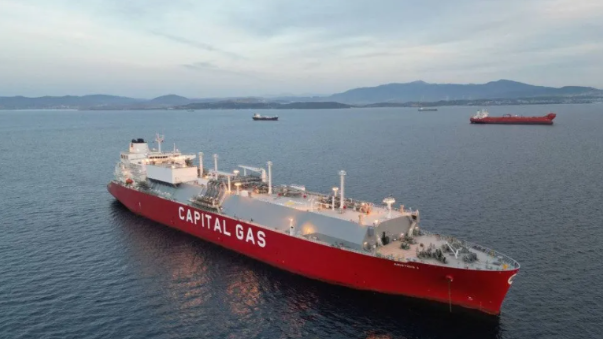Global shipping consultancy Drewry reports that the impact of new US tariffs appears to be taking hold, with carriers canceling 198 sailings in March and April—a sharp increase from the 135 blank sailings recorded during the same period in 2024.
The rise in cancellations is particularly pronounced on Asia-West Coast, North America, and transatlantic routes. While carriers typically reduce sailings in February due to China's Lunar New Year, cancellations have continued into March and April this year. Drewry attributes this trend to US importers hesitating to ship goods from Asia amid tariff uncertainty, leading to lower volumes and more blank sailings.
Philip Damas, Head of Drewry’s Supply Chain Advisors, said, "After strong volumes in January-February—including some 'front-loading'—carriers likely anticipated a slowdown in imports, weaker year-on-year growth, and 'blank' sailings. Another factor behind the surge in cancellations could be carrier tactics. As shipping lines and shippers negotiate new service contracts effective May 1, some carriers may be cutting sailings to justify higher contract rates in what appears to be a tight capacity market."
Drewry notes that even on the transatlantic route, blank sailings in March and April have roughly doubled year-on-year. Damas pointed out that a much smaller share of annual contracts are negotiated on this route, meaning the doubling of cancellations should be linked to US tariff uncertainty and projected volume declines.
Latest data shows that across major East-West trade lanes—trans-Pacific, transatlantic, and Asia-North Europe/Mediterranean—77 sailings (8% of total capacity) have been canceled between weeks 15 (April 7-13) and 19 (May 5-11). Drewry predicts that over the next five weeks, the trans-Pacific eastbound route will see the most cancellations (53%), followed by transatlantic westbound (25%) and Asia-North Europe/Mediterranean (23%).
While the outcome of Trump’s proposed global reciprocal tariffs remains uncertain, signs suggest many countries will seek renegotiated trade deals with the US to mitigate effects. Meanwhile, the trade war with China appears to be escalating, as the US threatens to impose an additional 50% tariff on Chinese goods starting Wednesday unless China removes its 34% retaliatory duties—a response to earlier US tariffs.
"Liberation Day" Sparks Global Tariff Chaos, Leaving Shippers in Limbo
Renowned industry analyst Lars Jensen said the current uncertainty has put shippers in "an almost impossible position."
"Ship now, and risk tariffs being lifted—meaning you’ve paid high duties for nothing. Wait, and tariffs may rise further. Increasingly, US importers are taking a wait-and-see approach. To the extent their supply chains and inventories allow them to pause or delay shipments, that’s what’s happening now," Jensen explained.
"The next domino to fall will be carriers adding last-minute blank sailings to the US if bookings drop too sharply. As we saw in early 2020 when COVID first hit, carriers can act swiftly when faced with a sudden demand collapse."
The National Retail Federation (NRF) has called on President Trump to reconsider his trade policy, stressing that tariffs will only raise costs for American households.
"More tariffs mean more anxiety and uncertainty for US businesses and consumers. While leaders in Washington may not care about rising prices, hardworking American families do," said David French, NRF’s Executive VP for Government Relations. *"Tariffs are taxes paid by US importers, passed down to consumers—not foreign suppliers. More critically, imposing these tariffs immediately is a logistical nightmare, requiring proper notice and preparation for millions of affected US businesses."

Last
Record 2-Ton Cocaine Haul Seized from Norwegian Bulk Carrier in South Korea
South Korean authorities have confiscated a record two tons of suspected cocaine from the Norwegian-flagged bulk carrierM/V Lunita

Next
Greek Shipping Magnate Evangelos Marinakis Strikes Again with $1.6 Billion Container Ship Order in South Korea
Greek shipping tycoon Evangelos Marinakis has made another major move. Recent reports reveal that his company, Capital Maritime, h




